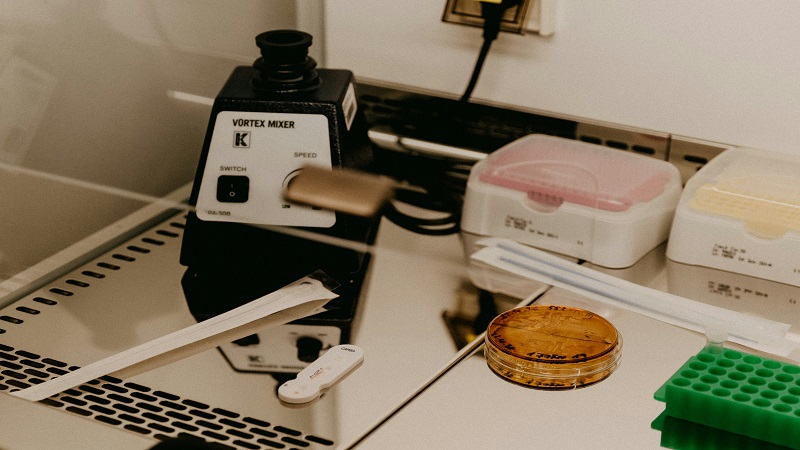In recent years, targeted protein degradation (TPD) has emerged as a groundbreaking strategy in drug discovery and molecular biology research. Unlike traditional inhibition-based approaches, TPD technologies leverage the body’s natural protein degradation machinery, offering unique advantages in targeting previously “undruggable” proteins. Central to this approach are E3 ubiquitin ligases, enzymes responsible for recognizing and tagging specific proteins for proteasomal degradation. For research institutions and biotech companies aiming to advance TPD programs, access to specialized E3 ligase and target protein development services has become an essential component of their innovation pipelines.
The Importance of E3 Ligases in Targeted Protein Degradation
E3 ligases act as the specificity determinants within the ubiquitin-proteasome system (UPS). They are responsible for selecting substrates and facilitating the transfer of ubiquitin molecules to these target proteins, marking them for degradation. Given their pivotal role, the identification, characterization, and engineering of E3 ligases have become critical areas of study in TPD research. Expanding the available repertoire of E3 ligases and understanding their substrate preferences directly impacts the success rate of designing effective degradation strategies.
However, working with E3 ligases poses unique challenges. Their activity can be influenced by cellular context, post-translational modifications, and complex formation with co-factors. Consequently, research teams require reliable platforms capable of producing high-quality, functional E3 ligases and providing comprehensive characterization data to support downstream applications.
Comprehensive E3 Ligase and Target Protein Development Services
Recognizing the complexity and specificity needed in this domain, specialized service providers like Profacgen have established advanced platforms dedicated to E3 ligase and target protein development. Their services are tailored to assist research scientists, biotech innovators, and technical development teams in overcoming experimental hurdles and accelerating discovery timelines.
Key service highlights include:
- Custom Expression and Purification: Leveraging both prokaryotic and eukaryotic expression systems, experts can deliver high-yield, properly folded, and active E3 ligases and target proteins. Optimization strategies are employed to ensure that proteins retain their native activity and structural integrity.
- Mutagenesis and Engineering: Site-directed mutagenesis and domain swapping technologies enable the creation of E3 ligase variants with altered substrate specificity or enhanced activity, supporting novel degrader molecule design.
- High-Throughput Screening Assays: Functional assays, including ubiquitination assays and binding affinity evaluations, help characterize the interaction dynamics between E3 ligases, substrates, and potential molecular glues or bifunctional degraders.
- Structural Biology Support: Services such as protein crystallization, cryo-electron microscopy (cryo-EM), and molecular modeling provide insights into protein structure and ligand-binding interfaces, facilitating rational degrader design.
Applications Across Research and Development Fields
The ability to access customizable E3 ligase and target protein development services empowers researchers across multiple disciplines:
- Drug Discovery and Development: Early-stage screening of PROTACs, molecular glues, and other degrader molecules benefits greatly from having a panel of well-characterized E3 ligases and targets.
- Mechanistic Studies: Understanding the biological roles of specific proteins in cellular pathways often requires precise control over protein levels, achievable through targeted degradation strategies.
- Target Validation: Researchers can validate the druggability of new targets by designing degradation assays using customized E3 ligases, de-risking later-stage development efforts.
- Biotechnology Innovation: Beyond small molecule discovery, TPD mechanisms are being incorporated into novel therapeutic modalities, synthetic biology tools, and engineered cell therapies, all of which require sophisticated protein engineering capabilities.
Quality and Expertise: Critical for Success
The complex nature of E3 ligases demands that service providers maintain high standards of quality control, technical expertise, and project flexibility. Successful projects rely on:
- Rigorous Quality Control: Confirming protein purity, activity, and stability through advanced analytical methods such as SDS-PAGE, Western blotting, mass spectrometry, and enzymatic activity assays.
- Customized Project Design: Tailoring workflows to specific research objectives, from simple protein production to full-scale functional validation.
- Experienced Scientific Teams: Cross-disciplinary teams with expertise in protein chemistry, structural biology, molecular pharmacology, and bioinformatics ensure that every project benefits from comprehensive scientific insight.
Partnering to Advance TPD Research
The rapid evolution of the TPD field underscores the importance of strong research partnerships. Collaborating with a specialized service provider like Profacgen enables academic laboratories, pharmaceutical R&D departments, and biotech firms to focus on their core innovation goals while leveraging cutting-edge expertise in protein development.
By offering end-to-end support—from gene synthesis and protein engineering to functional assays and structural characterization—these services not only expedite experimental workflows but also contribute to higher reproducibility and translational potential of research findings.
Conclusion
As targeted protein degradation continues to reshape the landscape of drug discovery and molecular research, access to high-quality E3 ligase and target protein development services will remain crucial for scientific and technological advancement. For research scientists and industrial innovators committed to staying at the forefront of this dynamic field, establishing collaborations with experienced service providers represents a strategic investment in success.
To learn more about customized E3 ligase and target protein development services and explore how they can accelerate your research, visit Profacgen’s dedicated service page or connect with their scientific team for tailored consultation.


